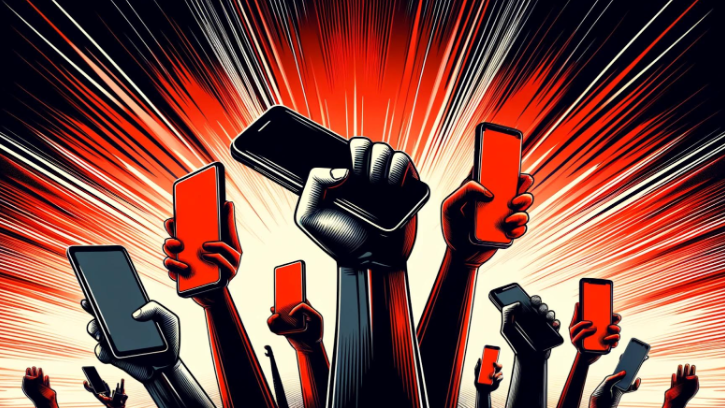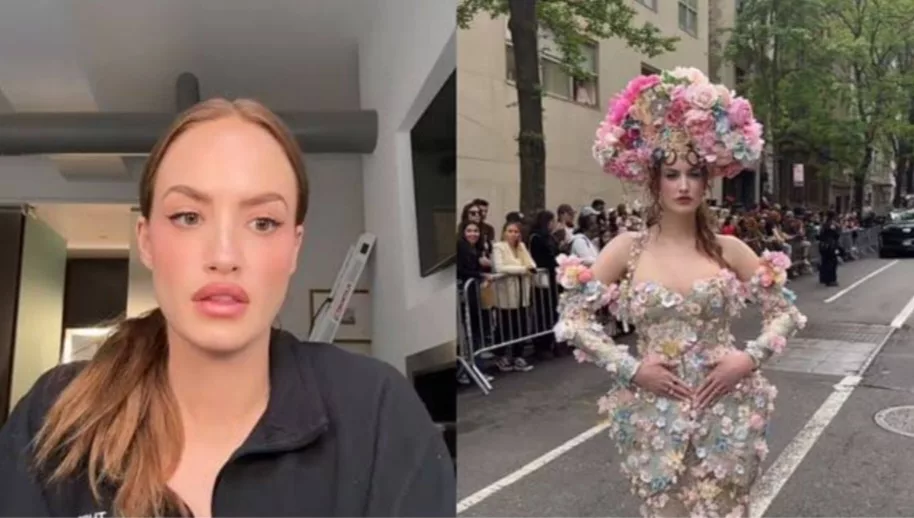Lifestyle
“Digitine”: A Revolution Fueled by the ‘Woke’ Audience

Imagine being told that being cancelled is now cancelled. It’s a twist no one saw coming, yet here we are. The Met Gala 2024 showcased a stunning display of glitz, glamour, and allure, along with some captivating drama. But the real showstopper was the emergence of a new trend: the ‘Digitine’ revolution. So, buckle up as we unravel why cancel culture was so last year and why the woke audience is now wielding the ‘Digitine’!
Off with their digital heads!

Essentially, the term “Digitine” is an abbreviation of “Digital Guillotine” and was popularized by a TikTok user named Rae (@ladyfromtheoutside). Digitine is a glorified version of cancellation culture and a tad bit more extreme. It essentially means online activists conduct a “Digital Guillotine” wherein they block all the influencers, celebrities, and wealthy socialites who fail to use their resources to help those in need. The first person Rae allegedly sentenced to “digitine” was a former American model and current social media influencer “Haley Kalil” after a TikTok of her lip-syncing to the infamous “Let Them Eat Cake” audio went viral online. Of the plethora of audios that Haley could have used, she opted for the line attributed to Marie Antoinette while wearing an 18th-century-inspired floral gown for E! ‘s coverage of the Met Gala 2024, and her detrimental decision cost her heavily.
Digitine: Another wokeism by-product?
With the advent of the so-called ‘woke’ audience, it seems everyone not only has an opinion on everything but also has the innate belief that their so-called opinions are the gospel truth (what the woke?). The TikToker who coined this term shared a similar conviction. Besides, she believed that an influencer depends on their audience and not vice versa. This ideology led her to publicly urge the internet to emulate her and start blocking such figures and influencers, beginning with Haley Kalil. The immediate drop in Kalil’s follower count after the video clearly indicated the power shift in the ‘Digitine ‘ revolution. Moreover, a movement propelled by the collective action of the ‘woke’ audience, making them feel the impact of their actions.
Is “Digitine” a viable solution?
The TikToker Rae concluded her video by unfollowing Hailey. Besides, along with a blade-slicing sound effect, paired with the message, “Vive la révolution.” Even though Kalil publicly apologized via a TikTok she posted later on, the damage had already been done. They say you should hit where it hurts, and Rae undoubtedly hit a cardinal spot. Influencers are paid according to the number of views they receive per post. Thus, losing followers or being blocked by multiple accounts could dent their earnings.
Another significant reason is that the more followers, the more value the influencer holds, especially concerning brand collaborations. In addition to an earning potential, the number of followers also represents the influence, appeal, marketability, and respect that an influencer commands, and losing their following creates a ripple effect that eventually leads to jeopardizing potential brand deals. Furthermore, thereby undermining the notion of the authority and influence that they possess. So, when an influencer faces “Digitine,” their power ceases immensely. However, brands that would otherwise collaborate and sponsor them now begin to think twice. Furthermore, as the influencer loses exposure to the number of audiences they once had.
The Indian perspective on “Digitine”
Although “Digitine” is a relatively novel concept in India, we’re well-versed with “Cancel Culture”. Influencers like Masoom Minawala and Vir Das and influential celebrities agree that cancel culture must stop. The internet, when used sagaciously, has proven time and again to not only be a boon but also a potent weapon. From big brands like Starbucks and Sabyasachi to big names in Indian cinema. However, no one is safe from cancel culture, and this goes to show the power that social media platforms hold. Moreover, how they can be used as a force for constructive and positive change.
In an era where social media can be wielded for mass impact, “Digitine” has emerged as a powerful example of the potential for unity among people to call out influencers who fail to use their platform and resources to help those in dire need. Although not yet widespread in India, will it offer a beacon of hope for a more responsible social media landscape? Let’s wait and watch!
